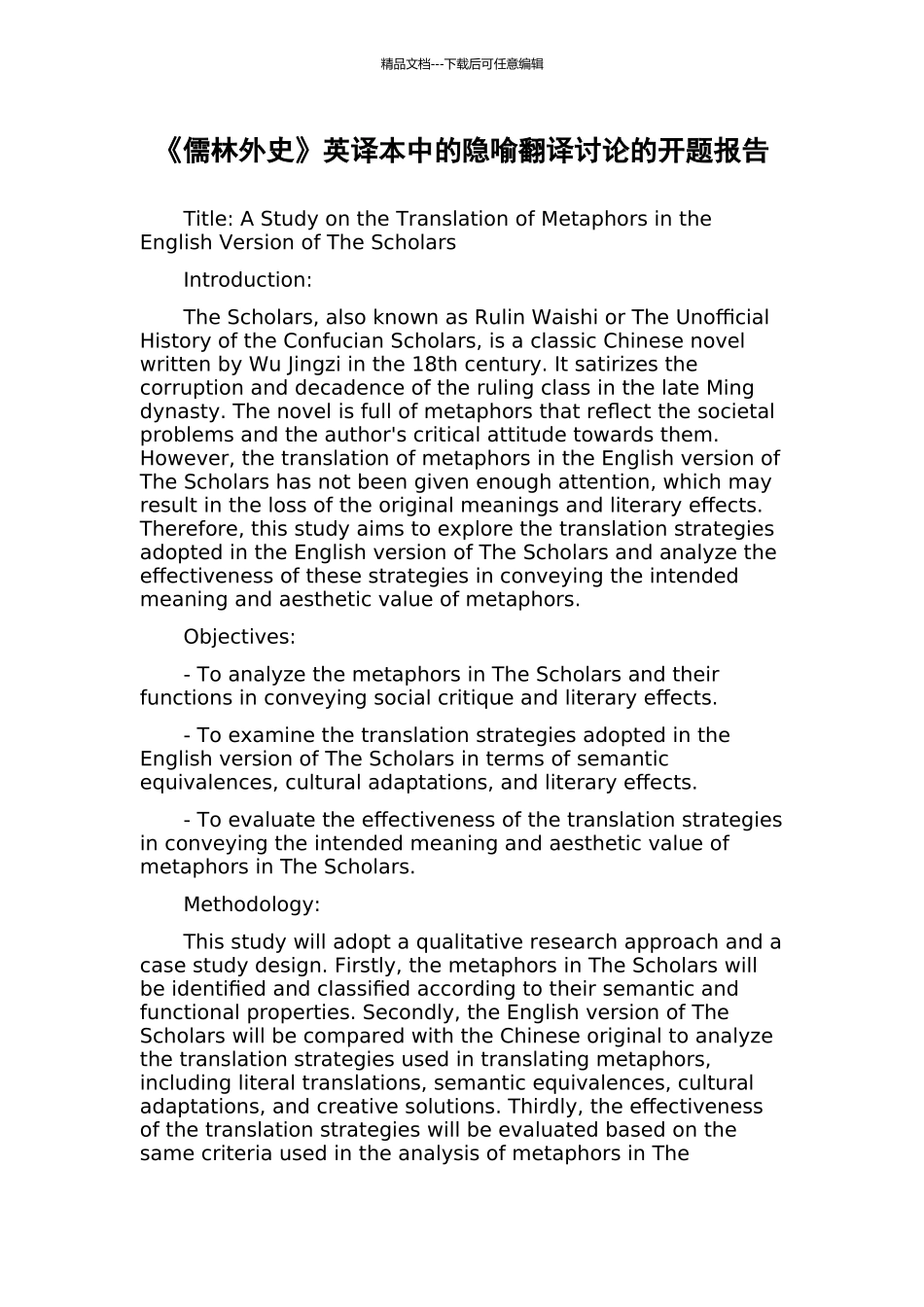精品文档---下载后可任意编辑《儒林外史》英译本中的隐喻翻译讨论的开题报告Title: A Study on the Translation of Metaphors in the English Version of The ScholarsIntroduction:The Scholars, also known as Rulin Waishi or The Unofficial History of the Confucian Scholars, is a classic Chinese novel written by Wu Jingzi in the 18th century. It satirizes the corruption and decadence of the ruling class in the late Ming dynasty. The novel is full of metaphors that reflect the societal problems and the author's critical attitude towards them. However, the translation of metaphors in the English version of The Scholars has not been given enough attention, which may result in the loss of the original meanings and literary effects. Therefore, this study aims to explore the translation strategies adopted in the English version of The Scholars and analyze the effectiveness of these strategies in conveying the intended meaning and aesthetic value of metaphors.Objectives:- To analyze the metaphors in The Scholars and their functions in conveying social critique and literary effects.- To examine the translation strategies adopted in the English version of The Scholars in terms of semantic equivalences, cultural adaptations, and literary effects.- To evaluate the effectiveness of the translation strategies in conveying the intended meaning and aesthetic value of metaphors in The Scholars.Methodology:This study will adopt a qualitative research approach and a case study design. Firstly, the metaphors in The Scholars will be identified and classified according to their semantic and functional properties. Secondly, the English version of The Scholars will be compared with the Chinese original to analyze the translation strategies used in translating metaphors, including literal translations, semantic equivalences, cultural adaptations, and creative solutions. Thirdly, the effectiveness of the translation strategies will be evaluated based on the same criteria used in the analysis of metaphors in The 精品文档---下载后可任意编辑Scholars, such as social critique, humor, irony, and rhetorical devices.Expected Outcomes:This study expects to contribute to the understanding of the translation of metaphors in literary works and provide insights into the cultural and linguistic challenges faced by translators in conveying the intended meaning and aesthetic value of metaphors. Moreover, this study may also shed light on the potential strategies and techniques that can be used in the translation of metaphors in Chinese literature.

